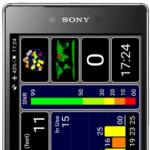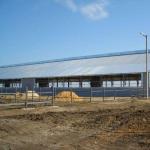The procedure for the development of technical specifications for food products. Specifications for food products
The food market today has no boundaries in terms of variety and assortment. And only a small part of the items is produced in accordance with the requirements of GOST. The vast majority of all this abundance is produced in accordance with the Specifications for food products. For the simple reason that GOST does not describe this or that product at all.
The procedure for the development and form of documentation of technical specifications for food products are regulated by GOST R 51740-2001. Accepted this normative act April 25, 2001. This normative act established that technical specifications are a technical document regulating the quality of products and the technology of their production, as well as storage, use and transportation. Also, specifications may contain information about the marking. Specifications for food products, like any other, is developed by the manufacturer himself, guided by the aforementioned GOST R 51740-2001.
In terms of the form of specifications, the standard establishes that the package of documents must have the following composition:
1. Title page.
2. The main part, where the text of the TU is placed.
3. Application hosted reference Information, additions and recommendations.
4. Sheet of registration of changes made to the specifications.
Specifications for food products should regulate the quality of raw materials, processing technology, production of the product and its scope. Also, the specification should describe the procedure and form of quality control, as well as the procedure for accepting and sorting the product.
In general, the development of technical specifications is a rather complicated process that requires certain knowledge. In many ways, this is why the expression “the manufacturer develops itself” is rather conditional. In the vast majority of cases, the enterprise does not have specialists and technical capabilities for the development of specifications. Therefore, they turn to our company, where they prepare all necessary documentation and register it in the prescribed manner.
In fact, registration of technical specifications as such is not required. However, in the case of food products, there are a number of pitfalls that a manufacturer cannot overcome quickly and without damage without qualified assistance. For example, specifications for foodstuffs must be coordinated with a number of departments. In particular, these organs sanitary control and certification and standardization bodies. If the technical specifications regulate the production of supervised categories of products, they will need to be coordinated in the manner prescribed by law.
If the TS holder decides to secure his rights to the documentation, additional examinations and registration of the TS will be required.
To do this, you need to provide us with the following documents:
- an application made in the prescribed manner;
- project TU;
- additional product information, reference materials;
- copies of constituent documents;
- examination protocol.
After registration of the technical specifications, the holder receives the right to dispose of the documentation at his own discretion.
TU, if necessary, can be adjusted or supplemented. In this regard, you can get additional advice from our experts.
The modern food market regularly expands its boundaries, surprising with the range and variety of products. Especially the fact that only a part of the presented products is produced in accordance with the rules and requirements of GOST. The lion's share of food products are produced according to the requirements of the Specification for Food Products.
Specifications and GOST are interrelated concepts. GOST R 51740-2001 of April 2011 regulates standard forms of documentation and the procedure for developing those. conditions for food products. According to this GOST, technical specifications - TU - are white paper regulating:
Production technologies;
Conditions, terms of storage and transportation procedure;
application and product quality.
Specifications for food products determine the labeling and other characteristics of food industry products. Unlike GOSTs, those. conditions are developed directly by the manufacturer of the product on the basis of the above-mentioned State Standard.
As noted above, when developing technical conditions, Gosstandart determines a certain composition of documentation support. It includes the following:
- "title" or title page, as the beginning of any document;
The main or main part - it contains the main points and the text of the technical conditions;
All changes, additions and corrections made to the technical specifications must be reflected in the registration sheet for changes and additions, which, in fact, completes the package of documents.
TU for food products
The main part of the specifications for food products should contain information not only about the quality of products and the technology of its production, but also the points characterizing the raw materials used in technological process. The quality of raw materials, processing technology, storage conditions, application principles and a number of other points should be established. Techniques and methods for controlling the quality of food products, as well as the points that determine the sorting and acceptance of food products, should be developed.
The process of developing specifications requires not only painstaking work, but also the availability of special knowledge. Not all food manufacturers can afford to have a staff of specialists in the development of specifications, which is why many of them come to our company for help. Our specialists provide assistance not only at the development stage, but also at the registration stage
In general, the concept of registration is somewhat arbitrary: this procedure is not mandatory. But as for those. conditions for food products, there are a number of hidden points that can only be overcome with the help of professionals. Firstly, it is necessary to coordinate the technical specifications with a whole list of departments and ministries, and secondly, check in the authorities sanitary supervision and control, as well as certification. All this is done in a certain manner established by law. In some cases, it is required to secure the rights to technical specifications, which will require a number of examinations.
This requires the submission of certain documents:
Application in the form prescribed by law;
Draft specifications;
Constituent documents or their copies;
Examination protocols.
After consideration of the submitted documents, the manufacturer becomes the owner of the technical specifications.
In addition to the main standard GOST 2.114-95, which establishes General requirements to the formation, content, form, agreement and approval of the Specifications, GOST R 51740-2001 is important, which defines the requirements for the Specifications developed in the food industry.
GOST R Specification defines the general requirements for the development and execution of specifications for new food products. For this industry, it acts instead of GOST 2.114-95. When developing it, the requirements of the following Federal Laws were taken into account:
- On the quality and safety of food products (Federal Law No. 29);
- About standardization;
- On the protection of consumer rights.
The standard establishes the cases when the development of new specifications is required on the basis of the regulatory document in question:
- in the absence of an international standard for food products being prepared for release;
- in the absence of national state requirements in the form of GOSTs;
- in the presence of GOST General Specifications, if the manufacturer of products needs to normative document enter clarifying information related to the products planned for production.
If there are no standards for planned products, then the developed specifications should include requirements not only for the products themselves, but also for technology, equipment, production control methods and finished products, to the regulation of production and other aspects that directly relate to the safety and quality of goods on the Russian market.
If GOSTs and sanitary requirements on food products are absent, then the developer is recommended to focus on food products and the conditions of their quality and safety related to similar food products in composition.
If there is a GOST General Specification for the product, then the development of new specifications must comply with the established state requirements and not go against them. This condition must also be implemented if the products for the developed Specifications are included in the group of goods for which there are standards or other Specifications (at the manufacturer).
The development of specifications is mandatory for state enterprises and private, involved in the sale of products own production population. If the existing specifications of the enterprise began to contradict the updated legislation or state standards, such Specifications shall be subject to review and adjustment based on new emerging requirements. Updates of the specifications may be required by the state supervisory authority.
High-quality specifications - minimizing the manufacturer's risks when declaring products
In accordance with the standard in question, Technical specifications for food products are coordinated with the territorial structures of the Federal Agency for technical regulation. Independent expert verification of technical specifications for compliance with the requirements of legislation and standards is assigned to regional centers Rostekhregulirovaniya. Examination of TS is carried out in terms of analyzing the completeness of the requirements of GOST R 51740, the correctness of execution and the reliability of references to GOSTs related to the labeling of food products.
What technical conditions are developed and registered - products of such quality will be manufactured according to them. Quality food products begin with the quality of the creation of specifications. Competent expertise does not miss specifications that do not meet safety and quality requirements. Not only buyers are interested in this, but also manufacturers.
By declaring the quality of its food products, the manufacturer assumes responsibility. The degree and nature of the risks associated with product certification is determined by the quality technical documentation for the manufacture of products. The declaration serves as confirmation of the fulfillment of the requirements of the document on the basis of which it was made - the Technical Specifications. If the obligations in the TS are not clearly and incorrectly spelled out, then, accordingly, the risks of the seller increase significantly.
Do not forget the fact that products manufactured according to low-quality specifications quickly cease to be in demand by buyers. With the current glut of grocery items, manufacturers are fighting for every customer. Including the development of high-quality specifications.





